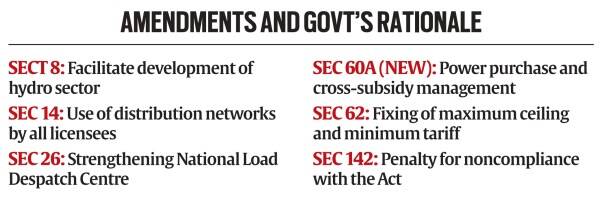7667766266
enquiry@shankarias.in
The government tabled the Electricity (Amendment) Bill 2022, soon after which it was referred to the parliamentary standing committee on energy for wider consultation with stakeholders.
Among the states that have defaulted on payments to Discoms, Telangana leads the chart, followed by Maharashtra.

References